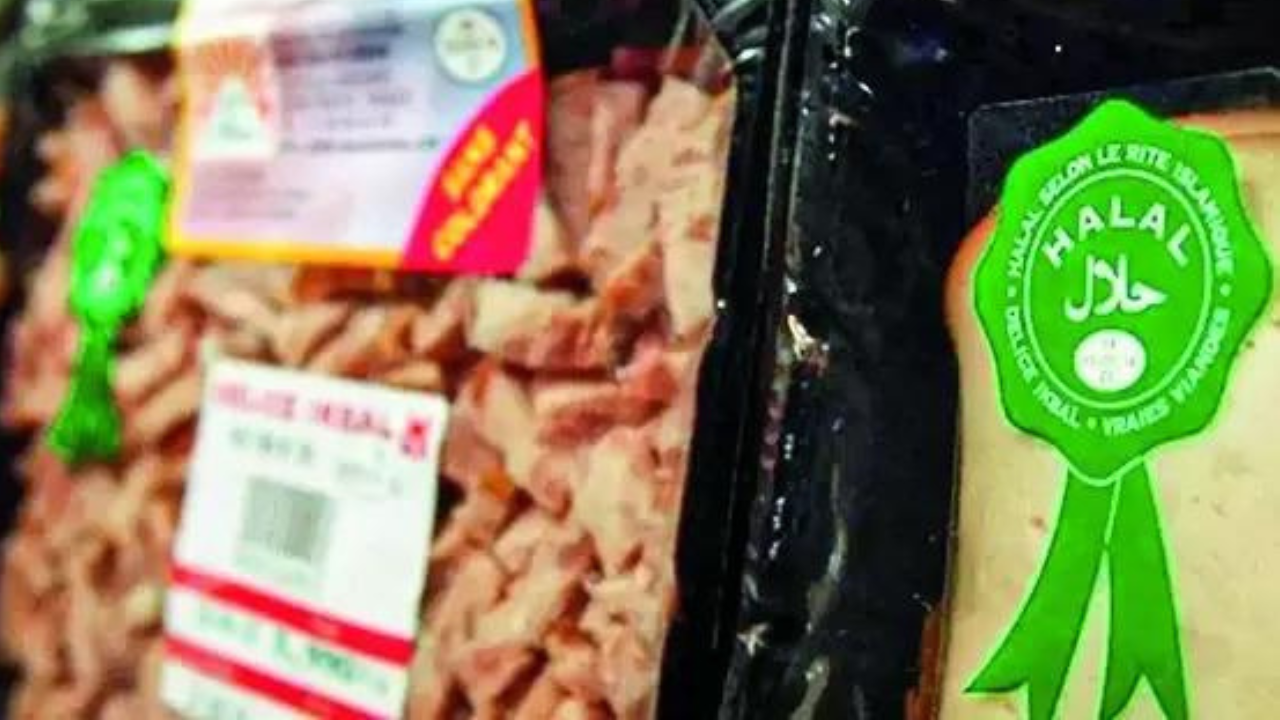Halal Certification: A Controversial Practice?
Are you aware of the ongoing debate surrounding halal certification? This seemingly simple practice is sparking fierce legal battles and raising significant consumer concerns. Let's delve into the heart of the controversy and uncover the surprising realities of this widespread certification. This is a shocking story about hidden costs and potential market manipulation.
The Shocking Truth About Halal Certification
Recent legal challenges have brought to light the staggering scale of halal certification, extending far beyond food products. A recent court case revealed the astonishing fact that various products, including cement, iron bars, and even water bottles, are subject to halal certification! This isn't just a matter of religious observance; it's a business impacting costs for everyday goods and materials. The Solicitor General of India expressed shock over this revelation, stating that it appears to inflate prices significantly for consumers.
Hidden Costs in Everyday Items
The impact of halal certification extends beyond the immediate cost. Every step in the manufacturing and distribution chain for halal-certified items incurs additional charges – from procuring certified materials to employing certified personnel. These hidden costs ultimately increase the prices consumers pay for an astonishingly broad range of commodities.
Challenges to the Halal Certification System
Numerous challenges to the existing system have highlighted concerns of its validity and effect on economic transparency. The existing system lacks strict quality control oversight, transparency in pricing structures, and clarity about who controls this extensive and significant sector. Consequently, these gaps are making people question the true validity of this business model. This is further fueled by suspicions of potentially inflating the cost of certified products which will eventually trickle down and inflate the cost of goods at the retail end and result in increased costs for all consumers.
The Legal Battle: A Fight for Transparency
The legal fight surrounding halal certification highlights fundamental questions regarding consumer rights, religious freedom, and economic fairness. The Uttar Pradesh government's ban on halal-certified food products reflects a growing concern over potential market manipulation and unfair price increases. The ban points to broader challenges: a lack of standardized practices, lack of oversight, the resulting lack of transparency, which can result in exploitation of the general public at the cost of greater profits to a few select individuals and corporations.
Concerns about Price Inflation
A critical aspect of the ongoing legal battle is the alleged price inflation associated with halal certification. It’s a problem that directly impacts the lives of ordinary consumers. The argument is that this added cost represents not only economic burden but also possible fraud – artificially inflating prices without providing a comparable increase in quality or benefits to the end users. The ongoing case underscores the pressing need for clear guidelines, regulations, and complete transparency within the certification industry.
Consumer Rights and Religious Freedom
The discussion of halal certification must acknowledge consumer rights and religious freedom as equally important factors. The central concern isn't necessarily opposition to halal itself, but to ensure that it operates ethically and within a fair market that is equally accessible and beneficial for everyone. Consumer confidence is key in ensuring a healthy and fairly traded product that supports ethical practices for businesses as well as religious freedom for individuals who would like to maintain religious requirements within their dietary requirements.
The Future of Halal Certification: Towards Greater Transparency
Looking forward, the future of halal certification will largely depend on establishing clear standards, rigorous oversight, and total transparency for economic considerations to maintain both ethical and business practices. This includes promoting competition amongst halal-certifying agencies, standardizing certification processes, and improving product labeling.
Ensuring Transparency and Consumer Trust
Regulators and certifying bodies must work towards complete transparency to regain consumer trust. That means clearly disclosing the costs associated with certification, outlining clear labeling regulations, and providing detailed and impartial information so consumers can make informed purchasing decisions. These regulatory oversights must focus on clear policies on certifications, manufacturing guidelines, distribution practices and a regulatory approach that encourages a free market that supports equal opportunities for both manufacturers and consumers to choose fair and ethical business practices without hidden fees and cost-inflating pricing.
Strengthening Regulatory Oversight
Effective regulatory oversight will be paramount in addressing the concerns raised. This involves enacting stronger regulations with sufficient penalties for violations and ensuring fair competition and effective auditing standards that support both ethical religious practice and open and fairly regulated markets that will work toward fair prices and support fair competition among businesses, manufacturers, distributors and suppliers.
Take Away Points
- The scope of halal certification extends far beyond food, including many everyday products.
- Concerns exist about potential price inflation associated with halal certification.
- Legal challenges are underway to address transparency and economic implications.
- The need for regulatory clarity and standards for this widespread industry is paramount to avoid exploitative practices and ensure consumers are making informed purchasing decisions.




